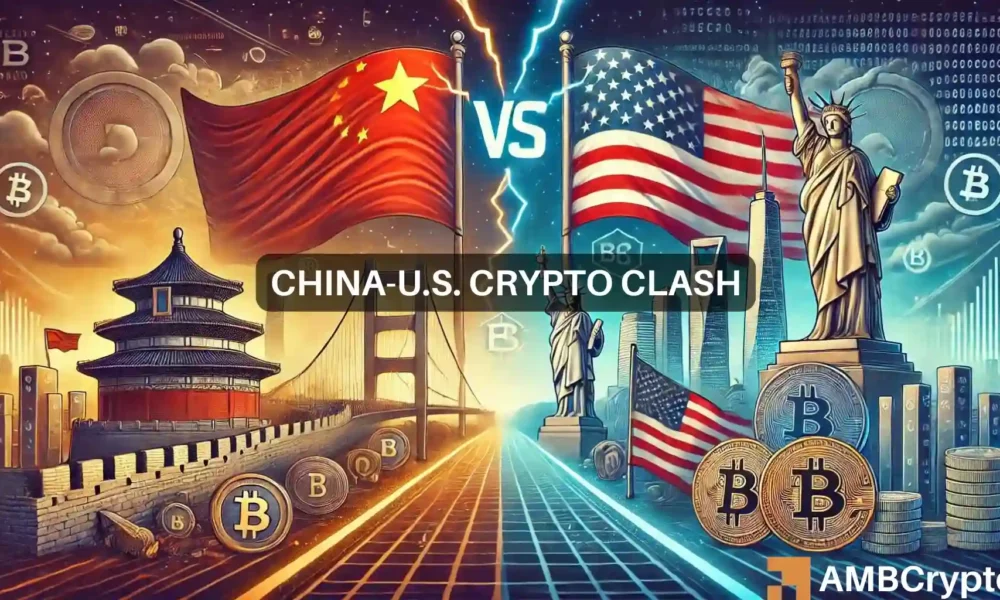News
Justin Sun pushes China to reconsider crypto stance amid U.S. elections
The potential competition between the U.S. and China in cryptocurrency policy could shape global Bitcoin dynamics.

- Justin Sun urges China to adopt progressive cryptocurrency policies amid U.S. competition.
- Potential China-U.S. rivalry in crypto could impact global Bitcoin adoption and industry dynamics.
With the rising prominence of cryptocurrency in the U.S. due to the upcoming presidential election, Tron blockchain founder Justin Sun has called for China to take decisive action.
Justin Sun’s crypto push to China
In a recent post on X, Sun urged the Chinese government to adopt a progressive stance on cryptocurrency policy, emphasizing the need for a more forward-thinking approach in the rapidly evolving digital landscape. He said,
“China also needs to step up. Since President Trump pushed for Bitcoin, U.S. policies have warmed. China should make further progress in this area.”
This coincides with a recent interview former President Donald Trump gave to Bloomberg, where he explained,
“If we don’t do it, China is going to pick it up and China’s going to have it—or somebody else, but most likely China.”
This underscores growing concerns in the U.S. about China potentially reentering the cryptocurrency market, having previously banned crypto trading and Bitcoin [BTC] mining in 2021.
What would happen if China re-enters the crypto market?
The fear is that China might outpace the U.S. in the crypto arena, fueling a competitive atmosphere between the two nations over digital assets.
China’s potential to outpace the U.S. in the crypto arena lies in its access to affordable hardware and low-cost electricity in certain regions.
Thus, if the Chinese government decides to provide incentives or relax current restrictions, it could quickly reestablish a dominant presence in the global cryptocurrency industry.
What impact would it have on Bitcoin?
Needless to say, this possibility raises concerns about the balance of power and influence in the evolving digital asset landscape. That being said, an obvious question that pops up is: Could this rivalry impede the global adoption of Bitcoin?
However, Sun had a unique perspective on the topic when he said,
“Competition between China and the U.S. in Bitcoin policy will benefit the entire industry.”
Interestingly, China and the U.S., both major players in the global financial system, are substantial holders of Bitcoin, collectively possessing around 400,000 BTC, according to Bitcoin Treasuries data.
Despite this, their regulatory approaches to cryptocurrency are increasingly divergent.
Thus, it will be intriguing to see how the U.S. responds to China’s potential reentry into the crypto market with new incentives, given the growing competition between these two economic giants.

